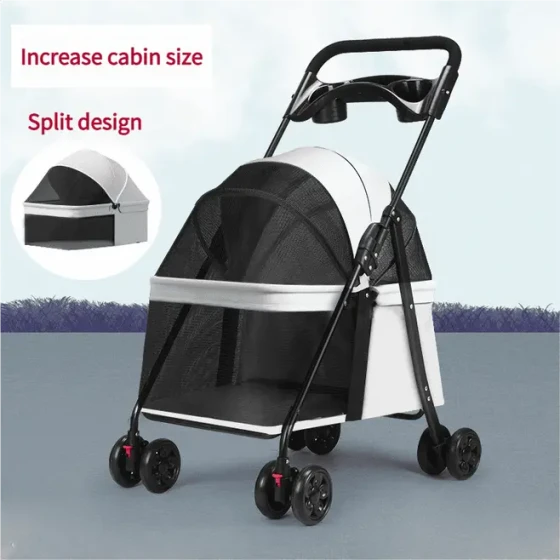Will a cat die if it keeps having soft stools_The fatal threat of long-term soft stools to cat health
Will a cat die if it keeps having soft stools? The answer is: Long-term soft stools, especially those accompanied by other symptoms, can indeed pose a serious threat to a cat's health and may even lead to death in extreme cases. Although occasional soft stools may just be a "small episode" caused by indigestion or stress, if a cat consistently has soft stools, it's like the body is sending out an alarm, signaling that the owner needs to take it seriously, as underlying issues such as dehydration, malnutrition, or even more severe illnesses may be present.
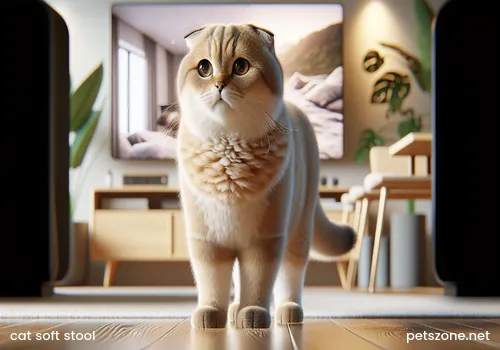
Soft stools are no small matter: Potential dangers of long-term soft stools in cats
A cat's excrement is a barometer of its health. Normal cat feces should be brown, formed, moderately soft and hard, like a "Snickers bar," leaving almost no residue when picked up. Soft stools appear wet, unformed, or even mushy, easily sticking to the ground or fur when picked up. Long-term soft stools mean the cat's intestines are constantly "upset," causing a chain reaction over time, which should not be underestimated:
- Dehydration and electrolyte imbalance: Soft stools contain a lot of water. If a cat continuously excretes soft stools, the body rapidly loses water and vital electrolytes (such as potassium, sodium, etc.). Imagine a faucet constantly dripping, eventually emptying the tank. Dehydration quickly leads to weakness and lethargy, and in severe cases, threatens life, especially in kittens, elderly cats, or cats with other diseases, where dehydration progresses faster and requires immediate veterinary care.
- Nutrient absorption disorders and malnutrition: The intestine is key to nutrient absorption in cats. Long-term soft stools mean food stays too short in the intestine, preventing full digestion and absorption of proteins, fats, vitamins, and minerals. Over time, the cat will develop malnutrition, showing weight loss, dull and rough fur, poor spirit, lowered immunity, and increased susceptibility to illness.
- Decline in immunity: Intestinal health is closely related to a cat’s overall immune system. Imbalances in gut flora and damage to the intestinal mucosa weaken the immune defense, making the cat more vulnerable to bacterial and viral infections.
- Exacerbation of underlying diseases: Soft stools themselves may be symptoms of serious diseases like inflammatory bowel disease (IBD), pancreatic diseases, liver and kidney diseases, or even tumors. Without intervention, these diseases may not be diagnosed or treated timely, worsening continuously and ultimately threatening the cat’s life.
- Quality of life impairment: Frequent soft stools not only cause discomfort for the cat but may also lead to fecal contamination around the anus, causing skin issues (like black chin), affecting quality of life and the cat’s mood.
Tracing the source: Common causes of long-term soft stools in cats
The causes of long-term soft stools in cats are varied, much like a "Sherlock Holmes investigation" requiring careful observation by owners combined with professional veterinary diagnosis to "solve the case."
- Dietary issues: This is one of the most common and easily overlooked causes.
- Sudden food change: Cats have sensitive digestive systems. Abruptly changing cat food brands or types, especially from low protein to high protein, easily causes gastrointestinal discomfort, resulting in soft stools. It's like humans suddenly changing flavors; the stomach needs time to adjust.
- Food intolerance or allergies: Some cats may be allergic or intolerant to specific ingredients (like beef, dairy, fish). Even cat-specific goat milk powder may cause soft stools in some cats due to high lactose content.
- Improper feeding: Overfeeding, feeding spoiled food, or giving excessive snacks or raw (untreated) meat can cause indigestion and soft stools.
- Poor quality cat food: Low-quality, greasy, or containing hard-to-digest ingredients cat foods burden the digestive system and may cause soft stools over time.
- Parasitic infections: Internal parasites are a "hidden killer" causing soft stools. Roundworms, hookworms, coccidia, Giardia lamblia, etc., damage the intestinal mucosa, impair digestion and absorption, causing soft stools, sometimes with blood or visible worms. Even indoor cats need regular deworming since they groom themselves, potentially ingesting parasite eggs.
- Bacterial or viral infections:
- Viral infections: Infectious enteritis (feline panleukopenia), feline coronavirus and other viral diseases often come with severe diarrhea, vomiting, fever, and lethargy, and are usually very critical.
- Bacterial infections: Bacterial enteritis can also cause soft stools and generally requires veterinary diagnosis and antibiotic treatment.
- Stress response: Cats are sensitive. Environmental changes (moving, new family members, noise), visits to the vet, vaccinations, or deworming can cause stress and tension, triggering stress-related soft stools.
- Inflammatory bowel disease (IBD): A chronic intestinal inflammation characterized by long-term soft stools, vomiting, loss of appetite, and weight loss. Diagnosis and treatment are complex, involving professional veterinary intestinal biopsies.
- Other diseases:
- Pancreatic diseases: Such as pancreatitis or exocrine pancreatic insufficiency, affecting digestive enzyme secretion, causing fat malabsorption and soft stools.
- Endocrine diseases: Hyperthyroidism can cause chronic diarrhea in cats.
- Liver and kidney diseases: Some chronic liver and kidney diseases impact digestive function, leading to soft stools.
- Tumors: Rarely, intestinal tumors can cause chronic diarrhea or soft stools.
- Medication side effects: Some drugs, especially antibiotics, may disrupt gut flora balance, causing soft stools.
Targeted treatment: How to scientifically address long-term soft stools in cats
Facing soft stools in cats, owners should not take it lightly but also not panic. The key is scientific judgment and timely correct action.
When to seek immediate veterinary care?
If the cat shows any of the following "red flag" signs, definitely take it to the vet immediately:
- Lethargy, loss of appetite, or drowsiness: Important signs of illness.
- Accompanied by vomiting: Soft stools with vomiting, especially frequent vomiting, usually indicate severe condition.
- Blood in stool: Whether bright red (possibly from gastrointestinal bleeding or parasites) or black tarry stools (usually upper GI bleeding), both are very dangerous.
- Signs of dehydration: Poor skin elasticity (pinch neck skin, slow to return), sunken eyes, dry sticky gums.
- Abdominal pain or discomfort: The cat may arch its back or resist abdominal touch.
- Kittens or elderly cats: Their weaker immunity means soft stools can rapidly worsen the condition.
- Soft stools lasting over 24-48 hours with no improvement.
How do vets diagnose?
Veterinarians will use the cat’s symptoms and history to conduct various tests to identify the cause:
- Fecal examination: The most basic and crucial test to detect parasite eggs, bacteria, viruses, and digestive enzyme activity.
- Blood tests: Evaluate overall health including dehydration level, electrolytes, inflammation or infection, liver/kidney, and thyroid function.
- Imaging: X-rays or ultrasound to check for intestinal foreign bodies, tumors, inflammation, or structural abnormalities.
- Dietary trials: For suspected food allergies or intolerances, vets may recommend prescription diets (hydrolyzed protein or novel protein) trials.
- Intestinal biopsy: For severe or chronic cases, endoscopic or surgical biopsy may be necessary for diagnosing IBD or other intestinal diseases.
Treatment plan:
Once a diagnosis is confirmed, vets will create a targeted treatment plan, which may include:
- Diet adjustment: The cornerstone of treating soft stools. Vets may recommend easily digestible, low-fat, high-fiber, or specific prescription diets (hydrolyzed protein, novel protein).
- Medication:
- Deworming medicines: If parasites are confirmed.
- Antibiotics: For bacterial infections.
- Probiotics and prebiotics: Help regulate gut flora, improve digestion and gut health.
- Anti-diarrheal medications: Such as montmorillonite powder, which absorbs intestinal toxins and protects the mucosa, but must be used under veterinary guidance.
- Anti-inflammatory drugs: Like corticosteroids (e.g., prednisone) for inflammatory bowel disease.
- Vitamin B12 supplementation: Chronic intestinal issues may cause B12 deficiency, needing extra supplementation.
- Fluid therapy: Intravenous fluids for severely dehydrated cats to replenish water and electrolytes.
- Other supportive treatments: Depending on specific causes, additional therapies may be required.
Prevention is better than cure: Daily tips to prevent soft stools in cats
"Prevention is better than treatment." Doing the following regularly can greatly reduce the risk of soft stools in cats:
- Stable diet:
- Regular and measured feeding: Avoid overeating to reduce stomach burden.
- Gradual food change: When changing foods, follow the "7-day food transition method," gradually increasing new food and reducing old over 7-10 days to allow the stomach to adapt.
- Choose quality cat food: Pick foods with clear ingredients, easy digestibility, single protein sources, avoiding excess grains or unknown additives.
- Avoid random treats and human food: Many human foods aren't suitable for cats and may cause indigestion.
- Regular deworming and vaccinations: Follow veterinary advice for regular internal and external parasite control (typically every 3 months) and vaccinations to prevent parasites and infectious diseases.
- Maintain hygiene: Keep litter boxes clean, wash food and water bowls frequently, avoid spoiled food and water, and reduce bacterial growth.
- Manage stress: Cats are sensitive; provide a stable, quiet environment. For necessary environmental changes, give probiotics a few days in advance or use cat pheromone products to help adaptation.
- Adequate hydration: Encourage cats to drink more to support digestive health. Try running water fountains, multiple water bowls, or adding small amounts of cat-friendly broths.
- Regular health checkups: Annual comprehensive veterinary exams help detect and solve potential issues early.
Frequently Asked Questions
Q1: My cat has soft stools but seems fine, is it serious?
A: If the cat occasionally has soft stools but shows normal spirit, appetite, drinking, and is active without other discomforts, it is usually mild indigestion, food change maladjustment, or short-term stress. Observe at home for 1-2 days and adjust diet appropriately. However, if soft stools persist beyond 24-48 hours or come with other abnormalities (blood in stool, vomiting, loss of appetite, lethargy), even if the cat seems okay, it is recommended to see a vet promptly.
Q2: What can I feed my cat to relieve soft stools?
A: To address soft stools, try:
* Fasting: For mild soft stools, temporarily fast 8-12 hours to rest the gut, but ensure adequate water intake.
* Easy-to-digest foods: When resuming food, offer boiled chicken breast, white rice, or vet-recommended intestinal prescription diets.
* Probiotics: Pet-specific probiotics help balance gut flora and alleviate soft stools. Choose multi-strain, high-viable-count products (at least 1 billion CFU).
* Fiber supplements: Unsweetened pumpkin puree or psyllium husk can help improve stool consistency.
* Montmorillonite powder: Use under vet guidance to stop diarrhea and protect intestinal mucosa.
Note these are alleviation measures; if soft stools persist or worsen, seek veterinary diagnosis immediately.
Q3: Will long-term soft stools affect my cat's lifespan?
A: Yes, long-term soft stools affect lifespan. While soft stools themselves may not be immediately fatal, they may indicate multiple underlying health issues like chronic dehydration, severe malnutrition, immunodeficiency, undiagnosed or untreated inflammatory bowel disease, chronic pancreatitis, or tumors. If uncontrolled, these issues severely damage bodily functions, reduce immunity, worsen quality of life, and may shorten lifespan. Therefore, long-term soft stools warrant serious attention and timely veterinary help.
Conclusion
Soft stools in cats are a health alarm to owners. From occasional "minor accidents" to persistent "major troubles," underlying causes range from simple indigestion to serious systemic diseases. As responsible owners, we must learn to observe subtle changes in cat feces and maintain vigilance, seeking professional veterinary help when needed. Remember, cat health is never trivial; early detection, diagnosis, and treatment ensure our furry companions remain healthy and live long, accompanying us through every loving moment.
References
- PetMD. Chronic Diarrhea in Cats.
- What’s Worth Buying. A must-read for cat owners: beware frequent soft stools in cats, as they may lead to serious diseases if overlooked.
- PetMD. Cat Diarrhea: When is it Serious and How Do I Stop It?.
- VCA Canada Animal Hospitals. Diarrhea in Cats.
- Pawlicy Advisor. Diarrhea in Cats: Causes, Treatment & Prevention.
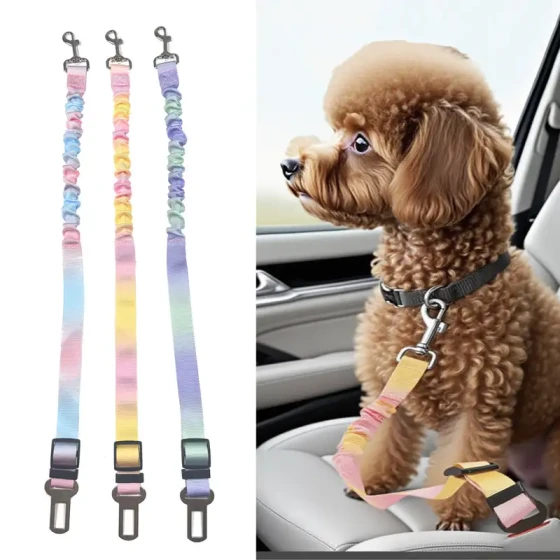
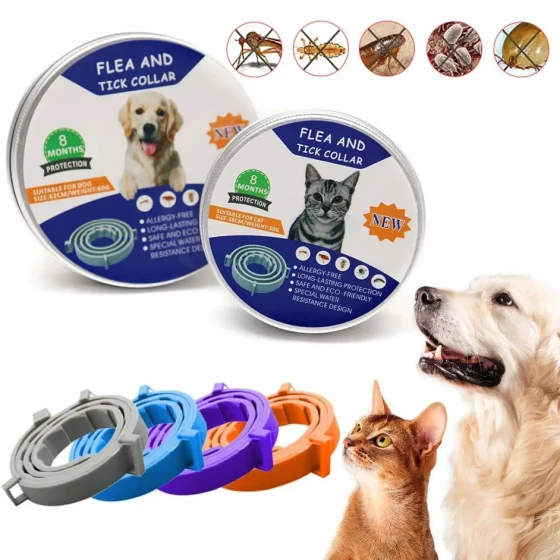
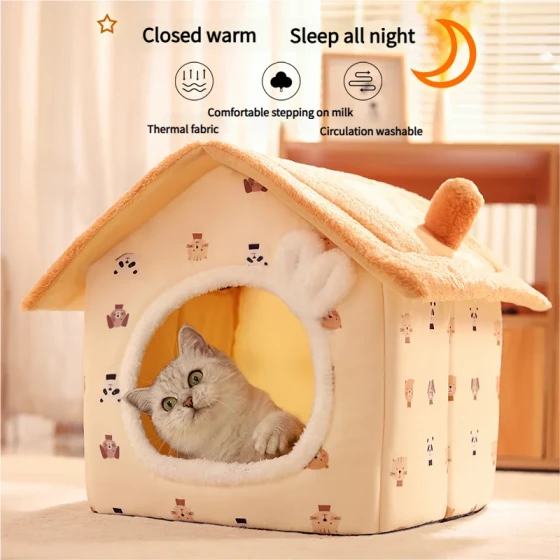
-560x560.webp)
